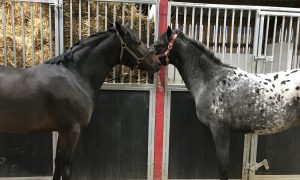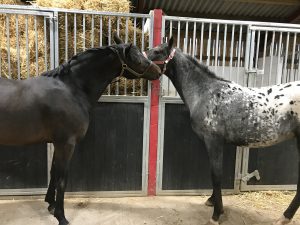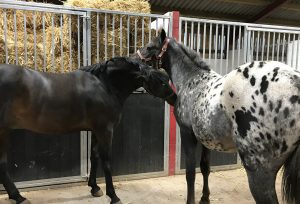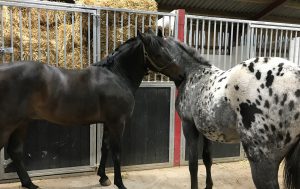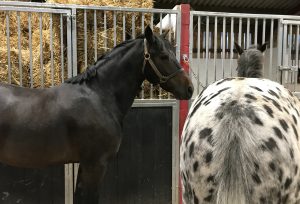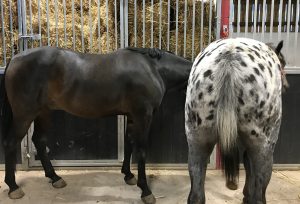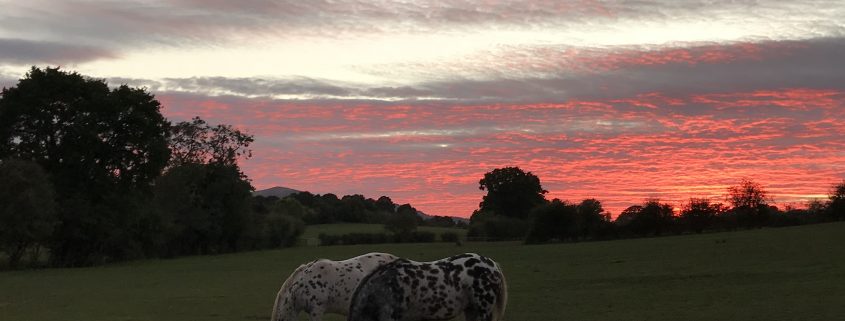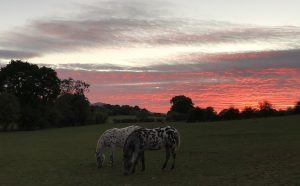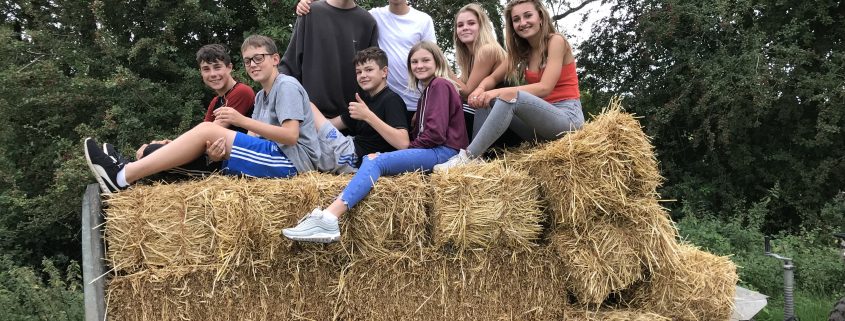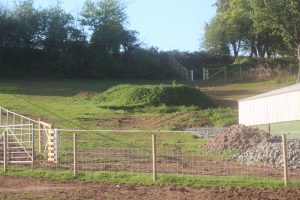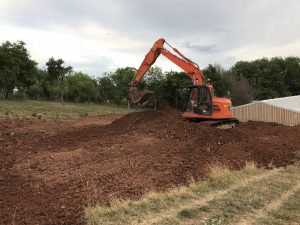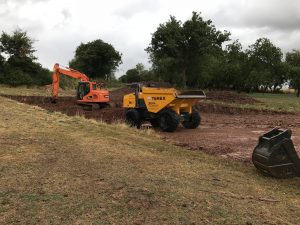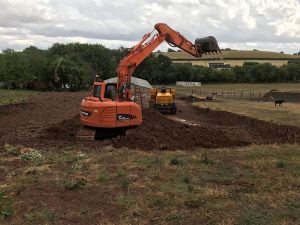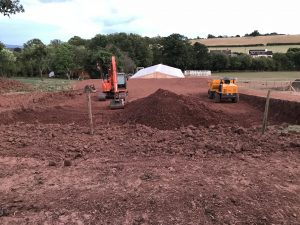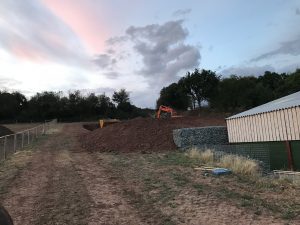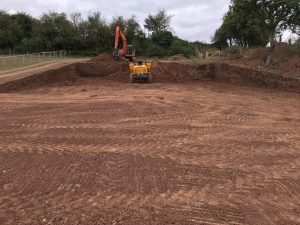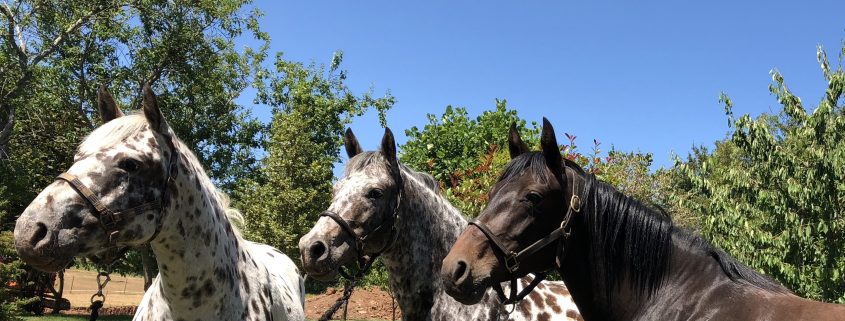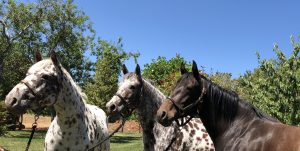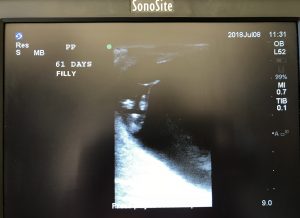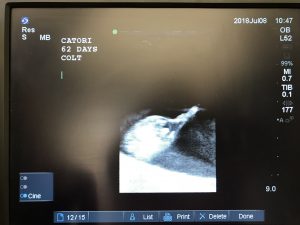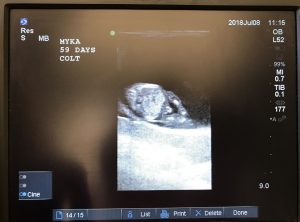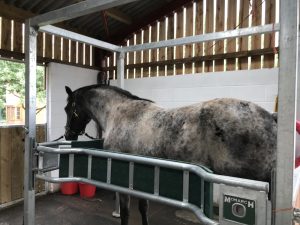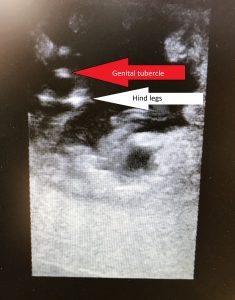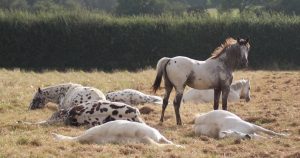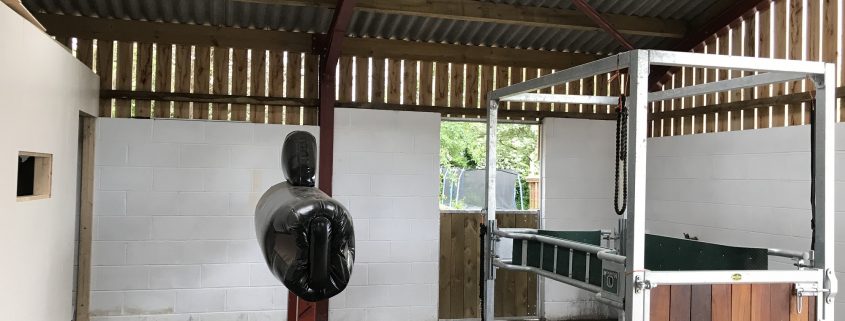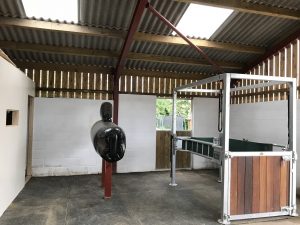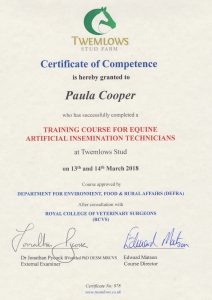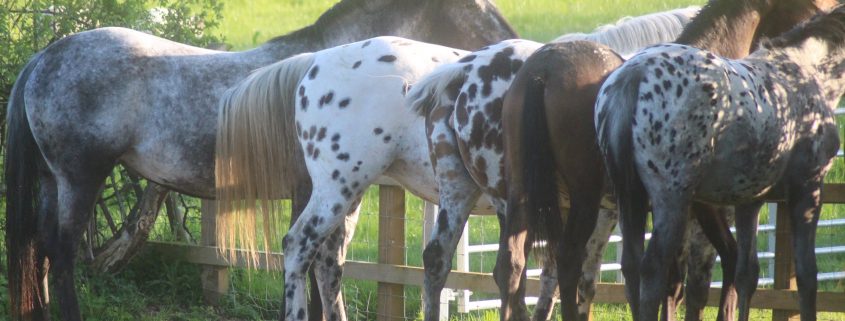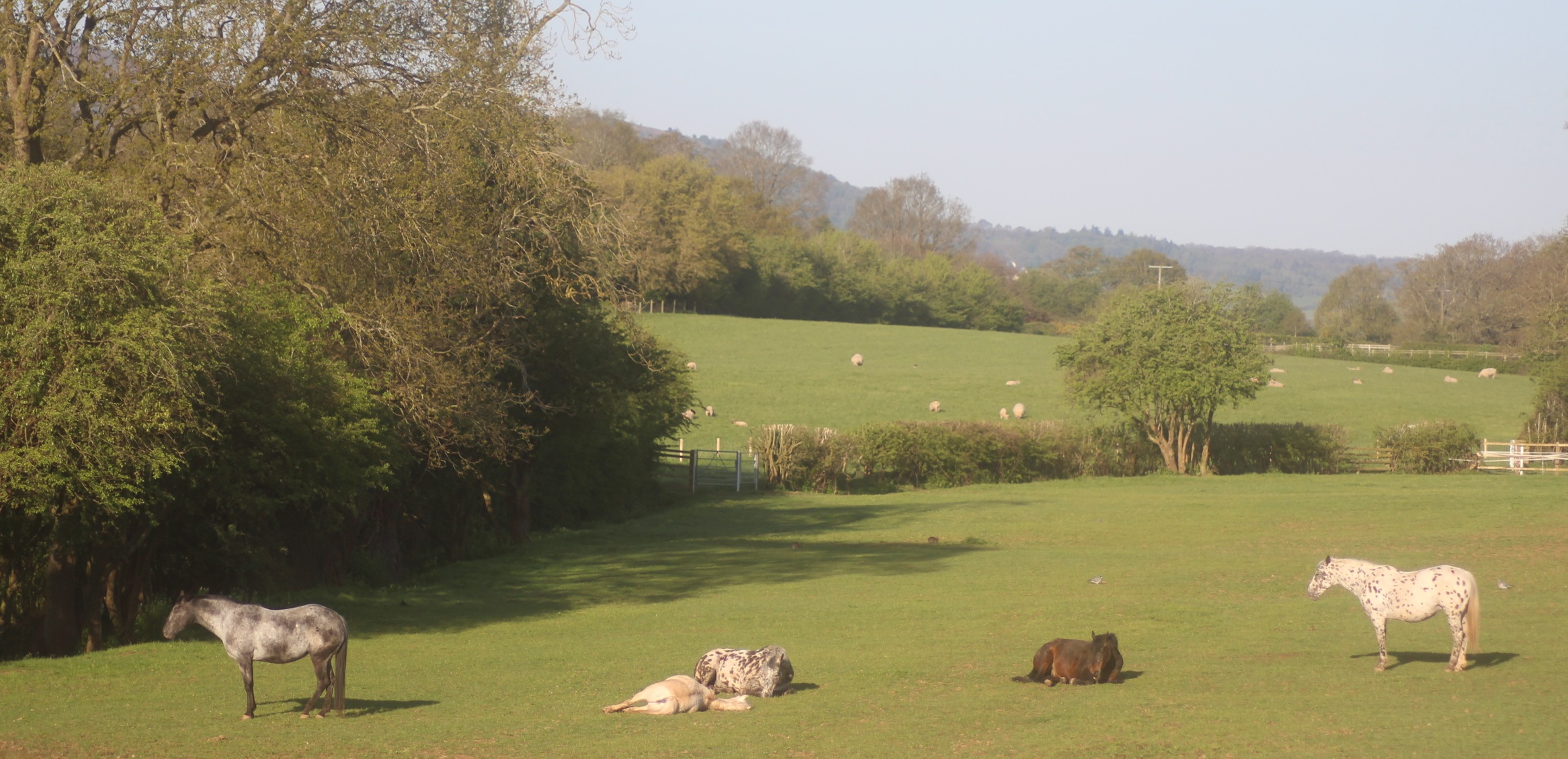Sunday siesta…
/0 Comments/in The Stud /by Paula CooperLES ROBES DES CHEVAUX – Horse Dresses/Coat Colour – French Publication
/0 Comments/in Foundation Appaloosa Mare, Peyres Catori Cat, Redheart Pascalius, Redheart Regal, The Stud /by Paula CooperThere are many assumptions about breeding for colour especially with the increasing availability of equine genetics to the public. More and more “breeders” are certainly breeding for colour, evident by beautifully coloured marked foals with no obvious thought for conformation, pedigree, temperament, registrations or performance and the list can go on…
No horse has perfect conformation, beauty is and always will be in the eye of the beholder, one reason why we prove the Redhearts in the ring, every Judge has their “ideal” type and colour should never come before confirmation. The rules are simply based on 60% conformation and 40% colour in “Most Colourful Class’s”.
Early this year we contributed a few images of our Appaloosas to aid the explanation of their genotype for the first French written book of equine genetics and it’s scientific approach to the colours of horses. It’s Author Laure Marandet has created an excellent book which explains the process of colourisation and hair dilution in horses. We are certainly privileged to have contributed to this publication.
LES ROBES DES CHEVAUX: Approche génétique et scientifique des couleurs des chevaux.
Redheart Father & Son..
/0 Comments/in Appaloosa Young Stock, For Sale, Foundation Appaloosa Stallion, Hevans EV Catorrius, Redheart Reality, The Stud /by Paula CooperChristmas day 2004 we entertained the “family” for lunch, about 20 of us and the food prep took a very long time, we had purchased the Cat Stevens CD and the songs played continuously.
One favorite song was (and still is) Father and Son, well some of the lyrics are just so fitting here when I see Reus talking with his son Reality…
“Just relax, take it easy”
“There’s so much you have to know”
“I was once like you are now, and I know that it’s not easy”
“But take your time, think a lot”
“Look at me, I am old, but I’m happy”
As a yearling Reality is looking rather tall against his father Reus who is 6!
Look at the height of that spotty bum!
A Red Sky At Redheart Appaloosa Stud…
/0 Comments/in The Stud /by Paula CooperWe join the many people who appreciate the beauty of sunrises and sunsets, moonlit halos and anything else Mother Nature throws at us…
During the beginning of October we’ve witnessed several evenings with a red sky but to capture an image with such beauty requires Appaloosas here at the Stud!
You can’t make animals in a herd, naturally, stand and pose for you, so you waited and wait and wait! Until, eventually, during the “movement” of grazing, you catch that split second of “the shot”. Here it is, with our two main mares…
Peyres Catori Cat & Princesse Pascale
Red sky at night, Appaloosas delight!
Redheart Appaloosa Stud – Behind The Scenes…
/0 Comments/in The Stud /by Paula CooperSo the morning begins at 6 am when the horses are tended to, in work at 8.30 and home by 6 pm.
After the horses are all tucked up its usually 9 pm but the weekends are so very precious, we aim to compete at about 10 – 12 shows a year, leaving the other weekends free to continue the works at the Stud.
We are so fortunate to have wonderful friends and family who always are here to lend a hand when needed and the village children are very helpful if the work repays in McDonald’s!
Here is the progress of the manège.
Redheart Mares – Sex Scanned…
/0 Comments/in Appaloosa Horse Club, Appaloosa Horse Club UK, British Appaloosa Society, Caricks Redheart, DFR Patahas Redheart, Foreign Breeds, Foundation Appaloosa Mare, Foundation Appaloosa Stallion, Peyres Catori Cat, Princesse Pascale, Redheart Pascalius, The Stud /by Paula CooperSo last weekend, our repro vet Mark Georgetti gave us his time, his patience and his expertise by sex scanning our three mares at around 60 days. We would like two fillies to continue our breeding programme with the semen stored from Hevans EV Catorrius (Reus). The only mares unrelated to him are Princesse Pascale and Caricks Redheart. You cannot breed two non-characteristic Appaloosas’s, (maybe one day the rule will change) therefore our fillies need to be heterozygous or homozygous.
We have inseminated all our mares with fresh semen from DFR
Left to right, Princesse Pascale carrying a filly, Peyres Catori Cat carrying a colt and Caricks Redheart also carrying a colt.
The 60-day ultrasound identified our mares are carrying single live fetuses. Mark was very patient to find the view required and eventually the genital tubercle was located.
We are grateful our mares are in foal and the foetuses are “single” and “alive”, we pray the gestation and births follow suit!
Peyres Catori Cat, who is Reus’ dam is carrying a colt and Caricks Redheart is also carrying a colt.
Princess Pascale is carrying the next future Redheart filly, how ecstatic are we?
We await Redheart Pascalius’s (Reu’s half-sister) sex scan at the end of the month, our GAP 6 foal is definitely a filly or a colt though!!!!
At 61 days gestation, our last mare Redheart Pascalius (Evee) has been sexed scanned.
The live scan definitely showed a filly but the picture I took looks like a colt, so time will tell.
Redheart’s first GAP 6 foal (six generation of Appaloosa x Appaloosa breeding).
The genital tubercle (which eventually will become the penis in a colt and the clitoris in a filly) develops on the midline of the fetuses, between the hind legs. The structure moves towards the umbilicus in a colt and toward the anus in a filly.
Artificial Insemination & Semen Collection @ Redheart Appaloosa Stud
/0 Comments/in Appaloosa Horse Club, Appaloosa Horse Club UK, British Appaloosa Society, Caricks Redheart, DFR Patahas Redheart, Foundation Appaloosa Mare, Foundation Appaloosa Stallion, Peyres Catori Cat, Princesse Pascale, Redheart Pascalius, The Stud /by Paula CooperOur ten-year plan is now well underway, we have imported new Appaloosa blood into the UK, we have shown in-hand all our “foundation” breeding stock and strongly believe our stock have earned their merits to breed, now we begin competing under saddle.
We have tested all the stock’s genes to clarify breeding forward with clear genetics. By definition, breeding negative mares to negative stallions can only result in negative foals. HERDA – Hereditary Equine Regional Dermal Asthenia, GBED – Glycogen Branching Enzyme Deficiency, HYPP – Equine Hyperkalemic Periodic Paralysis Disease and MH – Malignant Hyperthermia and of course the two most important here in the UK as Appaloosa registration default, the Grey gene, and PSSM1 – Polysaccharide Storage Myopathy.
For our own interest, we have tested the “foundation” stock for their colour and Appaloosa genetic makeup. It’s good to know what percentage of chance you have for specific color and coat patterns. One definite result we will never know is the gender, although saying that, our 2016 sex scans were correct.
The British Appaloosa Society (BApS) and the Appaloosa Horse Club UK (ApHC UK) have very strict guidelines for breeding registered purebred Appaloosas. We make sure our paperwork is fault free with DNA on file, genetic tests, stallion licensing and of course pedigree percentages. Redheart Appaloosa Stud pride themselves on not only ensuring completed registration certificates but the highest of the grades possible from each mating, being 100% Foundation Pedigree Designation (FPD), Generation Advancement Programme (GAP 5 or GAP 6) with Appaloosa Horse Club and GRADE A or STUD BOOK with the British Appaloosa Society. Our horses are overstamped with the Sports Horse Society and all foals are eligible.
We treat our mares like “princesses”, they are very important and are not breeding machines. We believe in quality, not quantity. The current supply of “Appaloosa’s” is high and the demand is low and if you’re looking for a spotty horse, then the market is plentiful, it is only through education will people understand the history of a Purebred Appaloosa, albeit BApS or ApHC UK registered. The current market offers some wonderful spotty horses, but beware and ask the right questions, not every spotty horse is an Appaloosa. The realisation that the purebred Appaloosa is a rare breed in the UK with less than twelve 100% FPD horses, less than six GAP 5 horses, not one GAP 6 and there are less than ten British Appaloosa Society Stud Book registered horses. (These figures might have increased to date).
We treasure our stallion, DFR Patahas Redheart, his age is a huge advantage to the longevity of the stud and his colour test confirmed homozygous black with a cream gene and homozygous PATN1 with foundation lines traced back to the first 8 Stud Books of the ApHC at 92.9687%. We know we have something quite unique, a very rare find in the Appaloosa world and one of a kind here in the UK.
Many studs and stallion owners allow their stallion to run with mares, some cover in hand and it works perfectly fine. On the other hand, some owners have seen and experienced detrimental damage to their stallions and mares under these conditions. Trying to limit the damage of such accidents we have stored frozen semen from our stallion Reus before castrating him, allowing him to have a rich life among his relations. Planning ahead with our stallion Blu, we have established a small AI unit, consisting of stocks, a basic lab, and a dummy mare. Certified by the Department for Environment, Food & Rural Affairs (DEFRA) as a UK AI technician I have the certificate of competence in AI of equines.
We are delighted to announce Princess Pascale, Caricks Redheart and Peyres Catori Cat are scanned in foal, due early April 2019.
We await Redheart Pascalius to come into season, looks like we will be busy next year!.
The Appaloosa Mares are out in the pasture..
/0 Comments/in Caricks Redheart, Foundation Appaloosa Mare, Peyres Catori Cat, Princesse Pascale, Redheart Pascalius, The Stud /by Paula CooperAfter a long winter, the ground has certainly dried and the spring grass is coming through.
Over the last week, our mares have joined our two yearlings, Regent and Reality in the pasture. Slowly increasing the amount of time spent grazing, they haven’t come up for air!
And then…waking up to this view!
Interesting Links
- Top Shots Photography
- Equi-BlingUK
- University of California Davis
- Three Counties Equine Hospital
- IJ Equine Photography
- NAK Sports Images
- Foundation Appaloosa Horse Registry (FAHR)
- LG Media & Marketing
- American Appaloosa Association
- International Colored Appaloosa Association, Inc
- AG Horse Transport (Adam Gibson Equine Horse Transport)
- All Breed Database
- Etalon Diagnostics
- Redheart Appaloosa Facebook Page
- Amy Griffiths Photography
- The Appaloosa Project
- Alison James Photography
- Appaloosa Horse Club UK (ApHC UK)
- Redheart Appaloosa Semen Sales Facebook Page
- Western Equestrian Society (WES)
- Animal Genetics UK
- The Appaloosa Museum
- Real Time Imaging
- The British Appaloosa Society (BApS)
- Simon Coates Photography
- Mountain Media
- Sundance 500 International
- Animal Genetics USA
Pages
- About
- Contact
- Home
- Mares
- Merchandise
- News
- Paula Cooper
- SALES
- Redheart Rain Dancer
- Redheart Raphaele
- Redheart Raven
- Redheart Realisation
- Redheart Reality
- Redheart Recognition
- Redheart Reflection
- Redheart Regal
- Redheart Regardless
- Redheart Regent
- Redheart Relentless
- Redheart Remembrance
- Redheart Replication
- Redheart Revelation
- Redheart Ricochet
- Redheart River Run
- Redheart Romance
- Redheart Rookie
- Stallions
- Why Redheart?
Latest News
- What a fabulous start to 2025 January 9, 2025
- Happy New Year 2025 January 1, 2025
- Bottoms Up @ New Year – 2024 December 31, 2023
- Foundation Appaloosa Semen Available 2024 (LP/LP PATN1/PATN1) – ALL MARES December 17, 2023
- The Redheart Stallions Receive Appaloosa Horse Club UK (ApHC UK) Accomplishments December 24, 2022
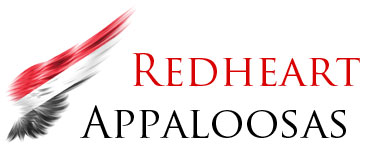
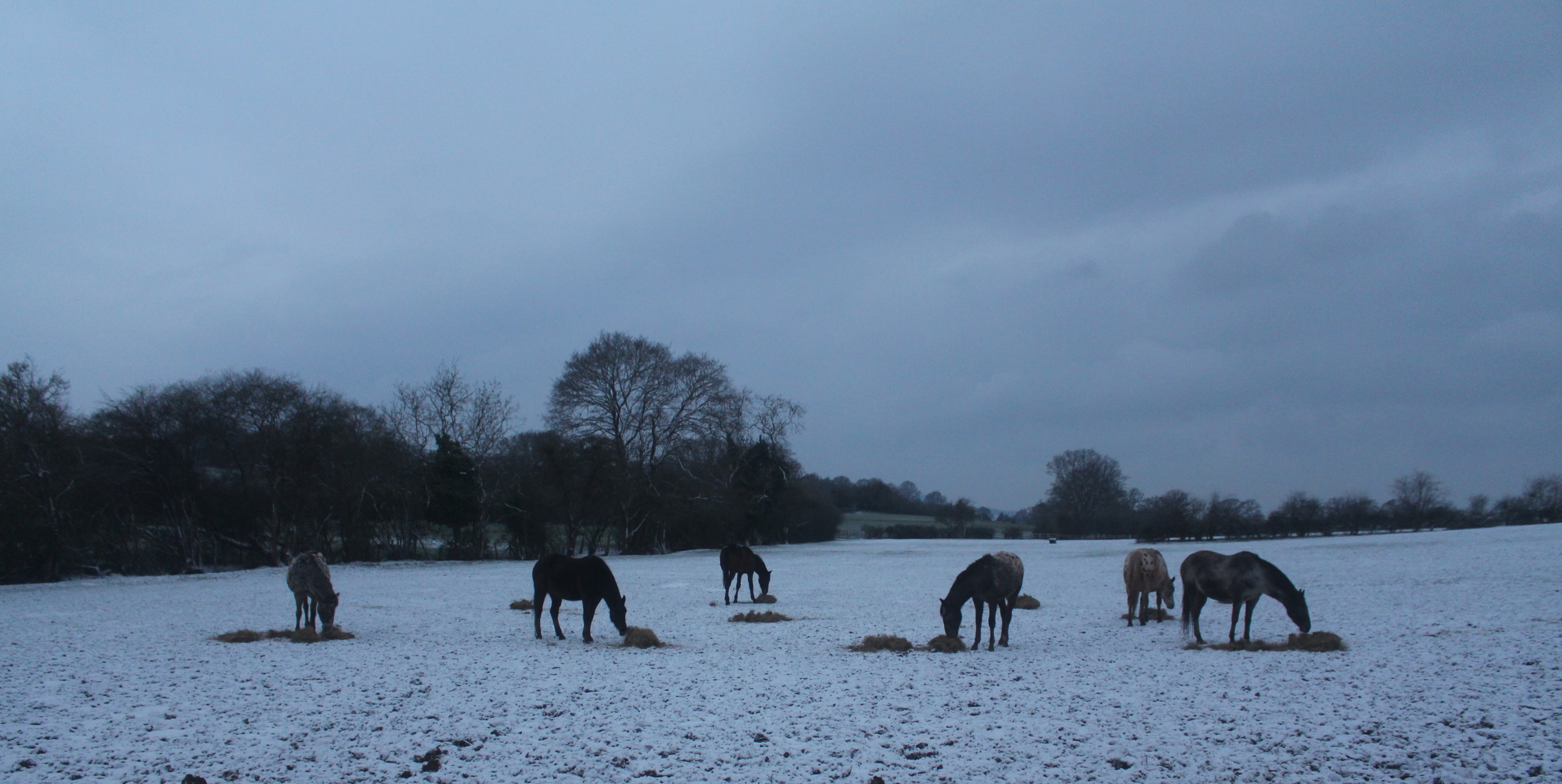
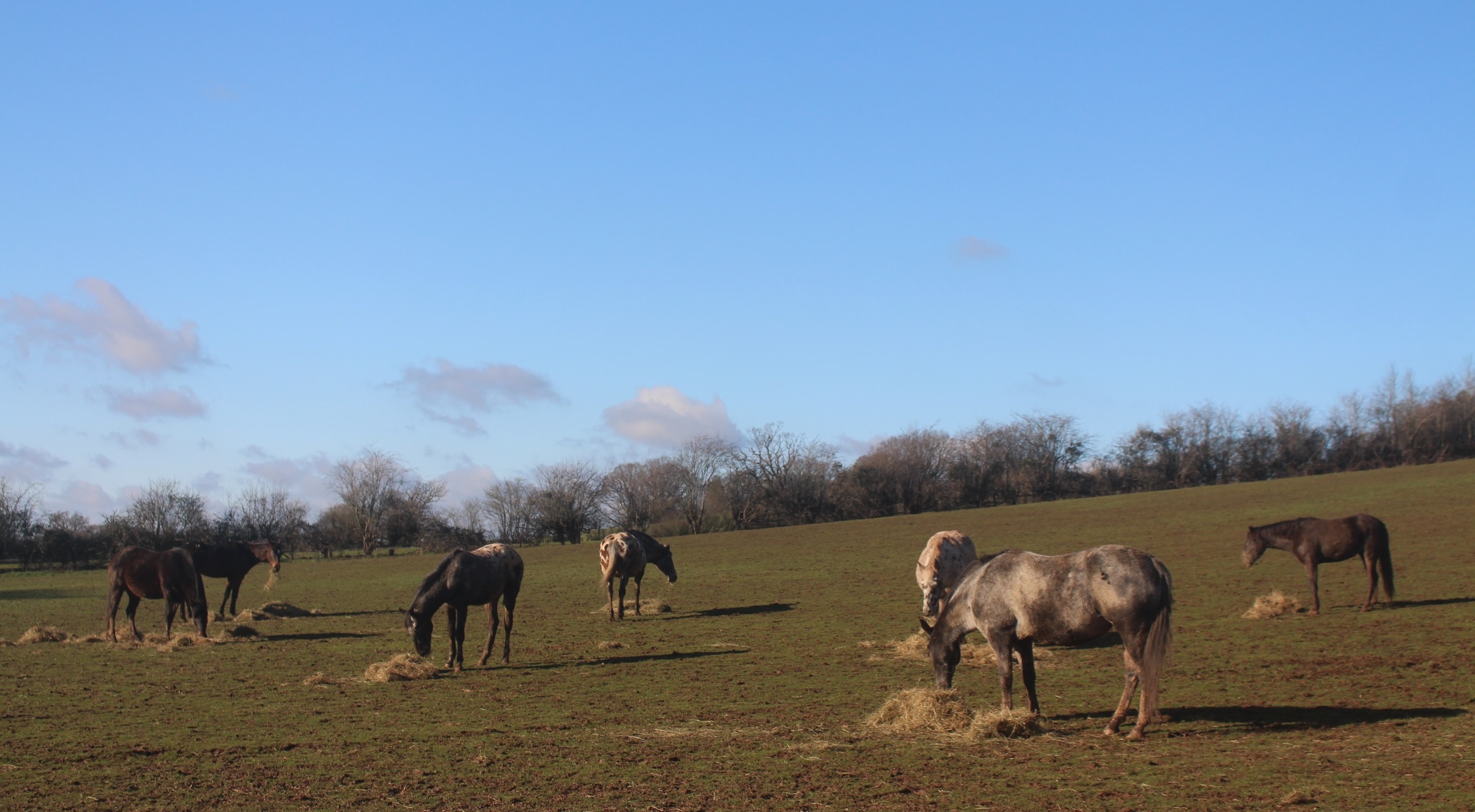
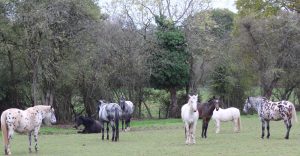

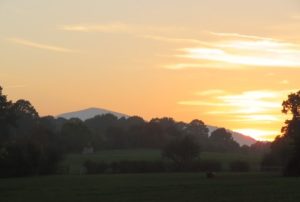
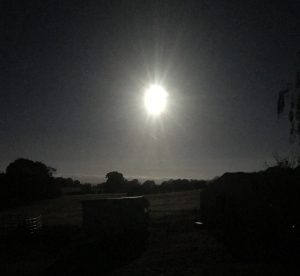
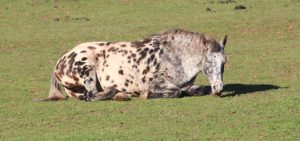
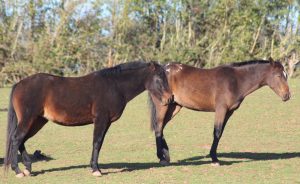
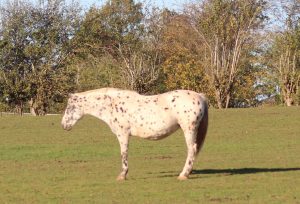
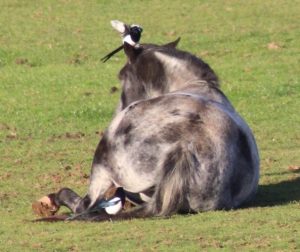
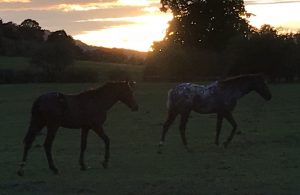
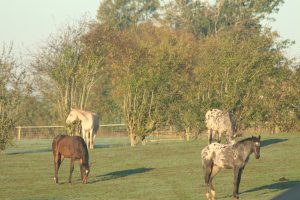
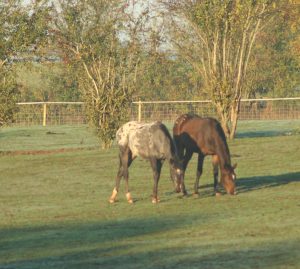
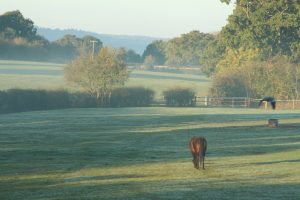
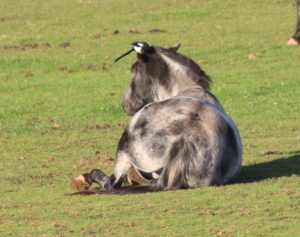
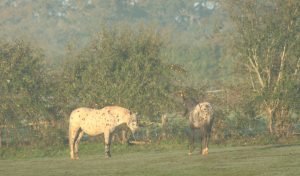
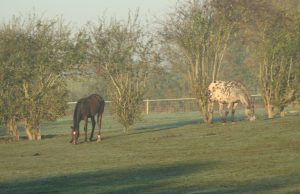
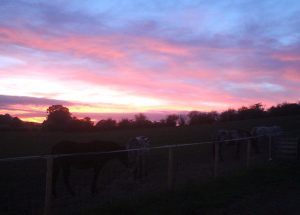
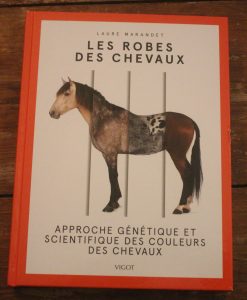
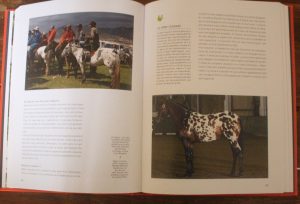 Peyres Catori Cat
Peyres Catori Cat 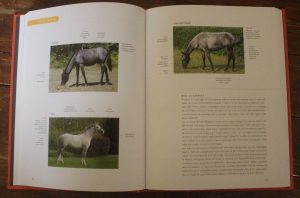 Redheart Pascalius
Redheart Pascalius 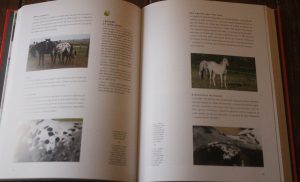 Redheart Regal
Redheart Regal 